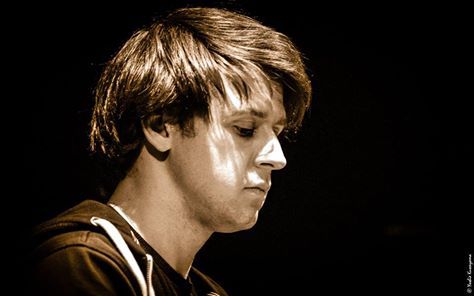
 Italy Bach/Siloti, Beethoven, Rachmaninoff, Britten, Prokofiev. Vitaly Pisarenko (piano) Concert of the Pontino Festival of Music in presentation with the Keyboard Charitable Trust in the courtyard of the town hall of Sabaudia 27.07.2015 (JB)
Italy Bach/Siloti, Beethoven, Rachmaninoff, Britten, Prokofiev. Vitaly Pisarenko (piano) Concert of the Pontino Festival of Music in presentation with the Keyboard Charitable Trust in the courtyard of the town hall of Sabaudia 27.07.2015 (JB)
You might expect a young Russian pianist to play Beethoven’s Pathetique with too much attention to the pathos. Not so Vitaly Pisarenko.
We are in the courtyard of the town hall of Sabaudia, a salubrious up-market, seaside resort, some hundred kilometres south of Rome. Many wealthy thespians and lawyers have summer houses here. The sun has just set on a hot day and while no sounds of the sea reach the ears, its welcome fragrance fills the nostrils. The pianist will later tell me that the heavy humidity of the day has made the Steinway’s keys almost unmanageably slippery. But right now the kindly West wind from the sea is reassuring the expectant, full, municipality courtyard audience.
Mr Pisarenko, small, lean, handsome, dressed in loose-fitting black, enters and plays through the Bach / Siloti Prelude, tapering it nicely at the end. An odd choice maybe for an opening. Some of these implied questions are heard in the puzzled audience’s applause.
Beethoven was twenty-seven when he wrote the Pathetique sonata. Pisarenko is twenty-eight. Beethoven struggled greatly to play the piano well, something which contemporary pianists say he didn’t, except for one very remarkable quality: a legato which was so perfect that its likes had never been heard before. The quality is called for in the Adagio. And what makes this impossibly demanding is that Beethoven calls for a cantabile sound too. So singing tone where one sound melts into the next. What an order! Strings do this rather easily. The piano struggles to meet those demands.
But it sounds as though Vitaly Pisarenko has never confronted these questions. He has a tendency to stab at the key that can only mean that not only can there be no cantabile, but no legato either: both are savagely cut off. He also took the Adagio cantabile pretty much at the same speed as the first movement’s Allegro molto. All this may be a young man’s efforts to avoid too much pathos. But if so, the young man confuses pathos with sentimentality. And we can all agree that Beethoven would have no truck with the latter. Nevertheless, there were moments when this aggressive, choppy playing sounded like a giant Czerny exercise being pumped out. Amidst these ruins, however, came some displays of crystal clear finger dexterity to dazzle and amaze, in accuracy as well as musical polish –especially in the cross-hand short phrase conversations of the first movement. And in his defence, I have to say that he was backed by a glass wall and was probably not hearing the same playing as we were in front of him.
Pisarenko was on much happier hunting ground for the rest of the programme. Two of the pieces embraced the joy of the hunt. And his dazzling technique makes him the finest huntsman.
I wish concert promoters would learn to write Rachnmaninoff’s name correctly. The question turns on the transliteration from the Cyrillic alphabet to the roman: double f or v? But the final years of Rachmaninoff’s career were in America and he always wrote his name with double f. So the v here is incorrect. A chap ought to have the right to tell you how to write his name!
Rachmaninoff’s 3 Etudes Tableaux are the perfect vehicle for Pisarenko’s amazing skills. He blazes through them with variant steely tones making difficult music sound easy: the proper definition of a virtuoso. He has made this music his own and the enthusiasm is communicated in his making.
Britten’s meditative brief Nocturne could hardly be more of a contrast. But this was the first time he showed us that he can coax quiet, beautiful sounds from what he at first, seemed to regard as an unyielding instrument.
Prokofiev’s sixth sonata is of course, another pianistic firework display. And Pisarenko rises beautifully to all the explosions in the opening and closing movements, though less so in the allegretto (second movement) -a term which always carries an invitation for grace and charm: both scarcities in the Pisarenko arsenal. Similarly, the subtle ironies of the tempo di valzer lentissimo (third movement) were somewhat overlooked.
After the concert and still with the kindly West wind (O Shelley, where are you?) I heard one old woman say to another, Well that was a good concert of music, wasn’t it? The second old woman, paused, then opened and closed her mouth, saying nothing. The first one then repeated, Well, wasn’t it? The second one hesitated. Then she turned and walked off.
Jack Buckley